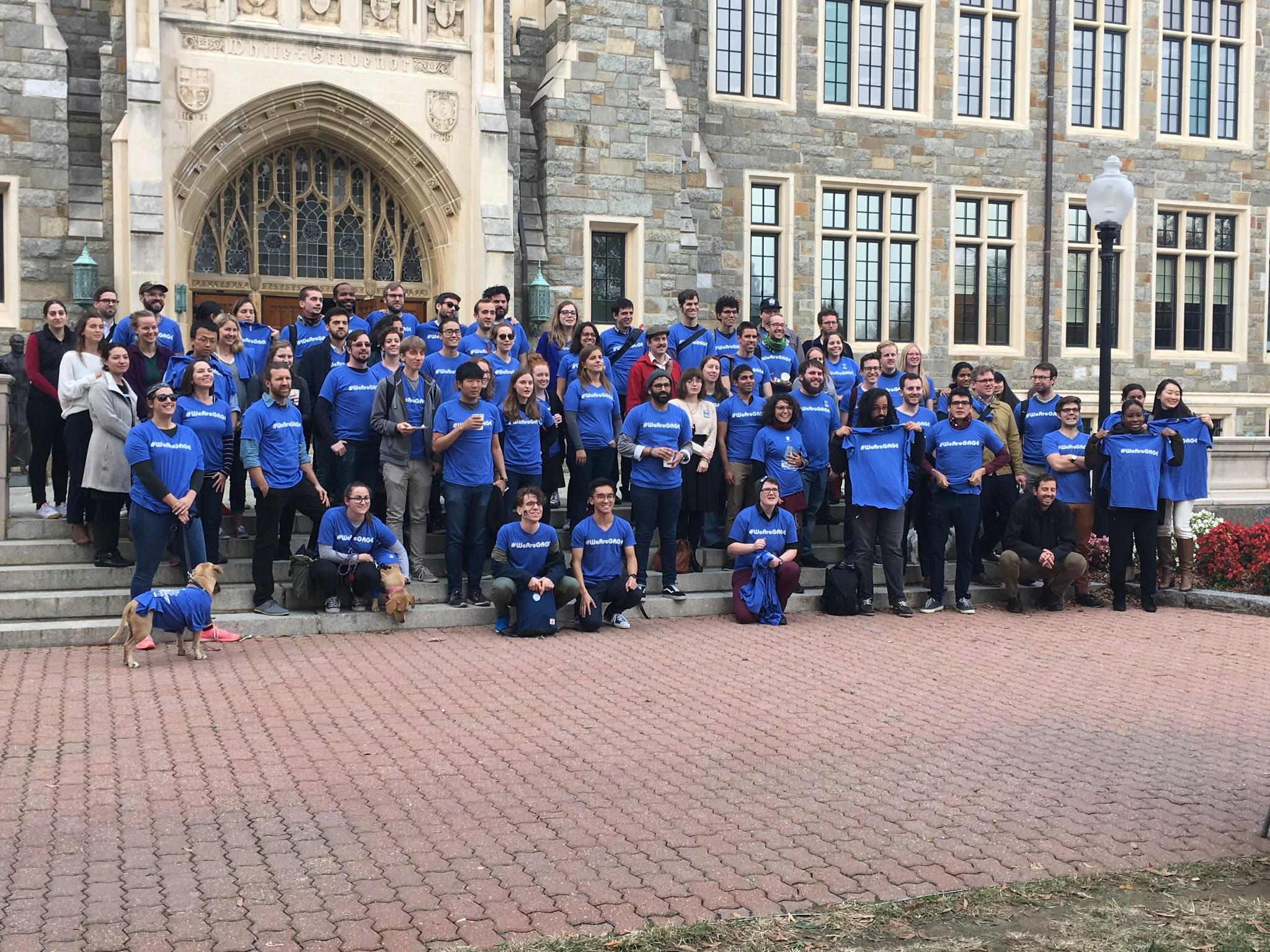In a meeting yesterday between the provost’s office and the Georgetown Alliance of Graduate Employees (GAGE), the university chose not to voluntarily recognize a graduate student worker union. GAGE had delivered a letter to the administration on Nov. 1 asking to be recognized as a union with the American Federation of Teachers. Over 50 percent of graduate student workers have signed union cards, mission statements, and other materials indicating their support for the new union, but the university has said that its role with graduate students is one of an educator, not an employer.
Some graduate students are required by their program to engage in a work component as part of their degree. Depending on the department they belong to, these graduate students may be required to TA classes, teach classes independently, or conduct research. Many of the Spanish classes offered at Georgetown for example are independently taught by Spanish-speaking Ph.D. students. GAGE refers to students who do this type of work as graduate workers.
GAGE began their formation and investigation into unionization in September 2016, after the National Labor Relations Board ruled that graduate students who work for universities are in fact employees. After more than 50 percent of all graduate student workers indicated their support for a union, GAGE delivered a letter to the university asking to be voluntarily recognized.
Yesterday, Provost Robert Groves told members of GAGE that the university had chosen not to voluntarily recognize the union. In a written letter to the members of GAGE, Groves and Edward B. Healton, executive vice president for health science, outlined the reasons for the university’s decision.
“We do not believe that graduate students take on a different relationship with the University during those semesters when they are teaching or engaging in research,” the letter reads. The letter explained that GAGE as a union, which would represent students enrolled in master’s or Ph.D. programs on the main and medical campuses who are also working as T.A.s or research assistants, would be exclusive of the majority of graduate students and have a changing composition with each semester. “We believe a graduate student’s relationship with the University is fundamentally an educational one,” the letter said.
Groves and Healton also explained the university’s stance that its Just Employment Policy does not apply to graduate students. The policy requires the university to allow union activity and organizing. “[T]he University will respect the rights of employees to vote for or against union representation,” the policy reads, “without intimidation, unjust pressure, undue delay or hindrance in accordance with applicable law.”
“We also remain committed to our Just Employment Policy,” the letter reads, “but we do not think the Policy applies to graduate students.”
“[T]hey rejected our request for voluntary recognition- but they did much more, which was deny that we are workers at all,” wrote Hailey Huget, a sixth-year Ph.D. student in the philosophy department, in an email to the Voice. “This means that they don’t believe we even have have the right to hold an election to democratically determine whether grads want a union.”
“[W]e are deeply concerned with Provost Groves’ statement that the Just Employment Policy does not apply to graduate student employees,” wrote Deidre Nelms, also of the philosophy department, in an email to the Voice, “and are disappointed that Georgetown refuses to recognize and respect the current US law clearly classifying graduate assistants as workers with the right to unionize and collectively bargain.”
GAGE intends to go forward with unionization despite the setback. “GAGE has all the necessary materials to file for an election with the National Labor Relations Board and intends to do so,” wrote Huget, “regardless of what Georgetown administrators think about our employee status.”
This post will be updated with more information.





